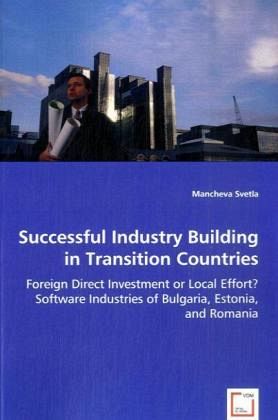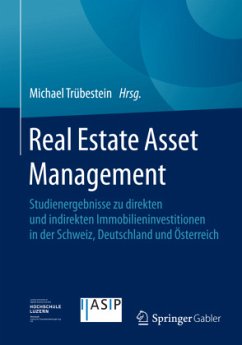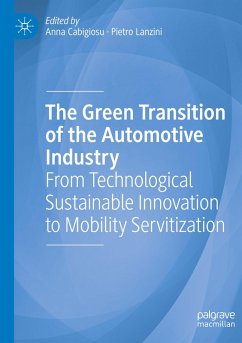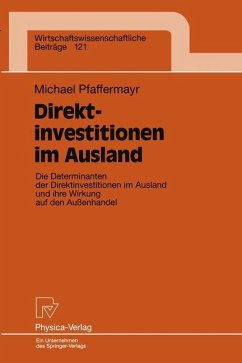
Successful Industry Building in Transition Countries
Foreign Direct Investment or Local Effort? Software Industries of Bulgaria, Estonia, and Romania
Versandkostenfrei!
Versandfertig in 6-10 Tagen
32,99 €
inkl. MwSt.

PAYBACK Punkte
16 °P sammeln!
The work examines the grounds for successful industrydevelopment in transition economies, focusing on the two types ofownership: foreign and domestic. The distinction is thus madebetween industries that are predominantly based on foreign directinvestment or on local entrepreneurship, with the aim ofestablishing which of these contributes more to the development ofthe local economy and human capital. The method of analysis focuseson case studies of the software industry in three transitioncountries - Bulgaria, Estonia and Romania, representing differentvariations of the types of industry owners...
The work examines the grounds for successful industrydevelopment in transition economies, focusing on the two types ofownership: foreign and domestic. The distinction is thus madebetween industries that are predominantly based on foreign directinvestment or on local entrepreneurship, with the aim ofestablishing which of these contributes more to the development ofthe local economy and human capital. The method of analysis focuseson case studies of the software industry in three transitioncountries - Bulgaria, Estonia and Romania, representing differentvariations of the types of industry ownership. For the purpose ofestablishing the most successfully developed industry, four factors/groups of factors are analyzed: industry size; production linkagesand knowledge transfer; specialization, value-added and innovation;and employment conditions. It is shown that the foreign-ownedindustries of Estonia and Romania have developed more successfullythan the local-owned Bulgarian industry. Itcan be implied thatforeign-owned industries, in particular knowledge-intensive oneslike the analyzed software industry, provide better chances fordevelopment than local ones.












